外国人の夫婦が日本で子どもを出産し、その赤ちゃんが日本で成長していく場合、その家庭全体の将来の在留計画、とくに「永住許可申請」の可能性を考えることが重要になります。実際に、日本での生活歴が長くなることや、安定した就労・扶養関係があることは永住許可において重要な判断材料とされるため、赤ちゃんの存在が将来的に有利な要素になる可能性があるのです。
When a foreign couple gives birth in Japan and their child grows up in the country, it becomes crucial for the family to consider their long-term residency strategy—particularly the possibility of applying for permanent residency. A longer history of living in Japan, along with stable employment and family support systems, are significant factors in immigration assessments. Therefore, having a child raised in Japan may positively influence future permanent residency applications.
永住申請における「家族構成」の評価ポイント
永住申請の審査では、個人の年収や納税状況だけでなく、「家族の安定性」も見られます。たとえば、日本で生まれた赤ちゃんが小学校に通っている、または家族で長く同じ住所に住んでいるなどの事実は、「日本に生活の本拠がある」と評価される材料になります。これは単に在留期間の長さだけでなく、「日本社会に根ざしているか」という観点でも評価されているのです。
In permanent residency screenings, not only the individual’s income and tax records but also the stability of their family is reviewed. For instance, if the child born in Japan is attending elementary school or if the family has been residing at the same address for years, such facts demonstrate that their primary base of life is in Japan. It’s not just the length of stay, but also how well they are integrated into Japanese society that matters.
「赤ちゃんが日本育ち」であることの間接的な効果
永住の審査項目に「子どもが日本で育っていること」が明示的に書かれているわけではありませんが、実務上、子どもが日本の学校に通い、日本語で教育を受けているという状況は、家族全体の「定住性」や「地域との結びつき」を裏付ける根拠として評価されることがあります。とくに家族単位での永住申請においては、こうした生活実態が大きな意味を持つのです。
Although Japanese immigration laws don’t explicitly list “child raised in Japan” as a criterion for permanent residency, in practice, having a child enrolled in Japanese schools and receiving education in Japanese can serve as evidence of the family’s settlement and ties to the local community. This lifestyle context becomes particularly meaningful when applying for permanent residency as a family unit.
どんな家庭が永住に有利になりやすい?
たとえば、父親が「技術・人文知識・国際業務(技人国)」で安定した職を持ち、母親が「家族滞在」や「配偶者ビザ」で育児を行っており、さらに子どもが日本の保育園や学校に通っているといったケースでは、「定住意思のある家庭」と見なされやすい傾向があります。つまり、赤ちゃんの存在そのものが将来の在留資格戦略にとって、重要なプラス要素になりうるのです。
For example, a household where the father holds a stable job under the “Gijinkoku” visa, the mother is staying under a “Dependent” or “Spouse” visa, and the child is enrolled in a Japanese nursery or school is often regarded as having a strong intention to settle in Japan. In this sense, the presence of a baby can become a positive factor in shaping the family’s future residency strategy.
家族での永住申請に向けて準備すべきこと
赤ちゃんが日本で育つ状況を活かすためには、まずは夫婦双方が安定した在留資格を持ち、更新時にも問題なく継続できていることが重要です。さらに、赤ちゃんが公立の保育園や学校に通う際には、必要に応じて在留資格の更新や在留期間の延長などのタイミングを合わせていくことが、スムーズな永住申請に向けた基盤づくりになります。
To take advantage of raising a baby in Japan, both parents must first maintain stable visa statuses and renew them without issue. Moreover, when the child enrolls in public nurseries or schools, it is advisable to align the timing of visa renewals and extensions accordingly. These efforts form the foundation for a smoother permanent residency application in the future.
永住申請に向けて、どのタイミングで動くべき?
永住申請には、原則として「10年以上の継続した在留」が求められ、そのうち5年以上は就労または居住資格であることが必要とされています。ただし、家族で一緒に永住申請を行う場合には少し事情が異なり、たとえば技人国ビザの父親が永住を申請する際に、家族滞在の母や子どもが同時に申請するケースでは、永住者の「配偶者等」「子」としての側面が評価され、比較的早い段階での申請が認められることもあります。実際に、実態ある婚姻関係が3年以上あり、かつ日本に1年以上継続して在留していれば、配偶者も同時に永住申請を行うことが可能とされており、子どもについても1年以上の在留があれば同様に認められることがあります。
Permanent residency applications generally require continuous residence in Japan for at least 10 years, including five years under a work or residence status. However, in family-based applications, exceptions may apply. For instance, if a father holding a “Gijinkoku” visa applies for permanent residency, the mother and child on a “Dependent” visa may apply alongside him. In such cases, if the marriage has lasted for more than three years and the spouse has resided in Japan for over a year, the spouse’s application may be considered favorably. Likewise, a child who has resided in Japan for over a year may also qualify under these special considerations.
行政書士に相談しておきたい場面
在留資格の見直しや永住申請のタイミングについては、法令や実務の解釈が絡むため、赤ちゃんが小さいうちから段階的に準備を始めるなら、行政書士への早めの相談が有効です。とくに家族全体での申請を考えている場合には、将来の進学や在留期間の管理まで含めて長期視点で戦略を練る必要があります。
Since visa reviews and timing for permanent residency involve legal and practical interpretations, it is wise to consult with an administrative scrivener early—ideally while the child is still young. This is especially important for families planning to apply as a unit, as it allows for strategic planning that includes future schooling and visa management over the long term.
まとめ:赤ちゃんの存在が家族の未来を支える
日本で赤ちゃんを育てていくことは、単に育児や生活の問題だけでなく、家族全体の在留戦略にとって大きな意味を持ちます。永住を目指す上で、赤ちゃんの成長過程や家族の定住状況をしっかり記録・証明していくことで、将来的に大きな力になるはずです。早めの準備と継続的な情報収集が、家族の未来を支える第一歩となるでしょう。
Raising a baby in Japan is not just a matter of parenting and daily life—it plays a significant role in shaping the family’s residency strategy. As the child grows and the family’s settlement deepens, documenting and proving this lifestyle will serve as a major advantage in pursuing permanent residency. Early preparation and continuous information gathering are the first steps toward securing the family’s future in Japan.
「こんなことで相談していいの?」
—— 大丈夫です! あなたの不安に丁寧に向き合います
フジ行政書士事務所では、日本で暮らす外国人の方が安心して生活できるよう、ビザのことはもちろん、手続き・仕事・暮らしの中で感じる不安や悩みにも寄り添っています。
「誰に相談したらいいか分からない」そんなときこそ、フジ行政書士事務所にご相談ください。
あなたにとっていちばん良い形を、一緒に考えていきます。
※LINEをご利用でない方は、▶ お問い合わせフォームはこちら からもご相談いただけます。


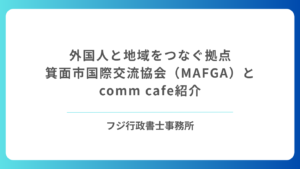
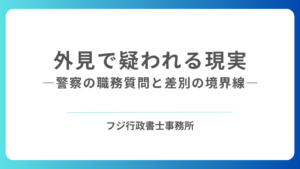
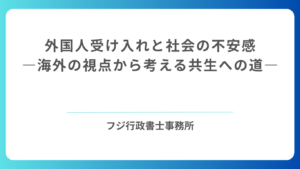
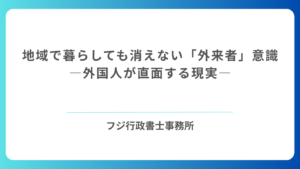
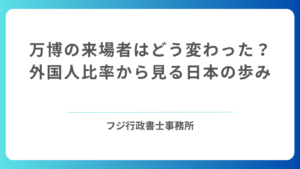
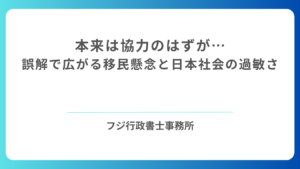
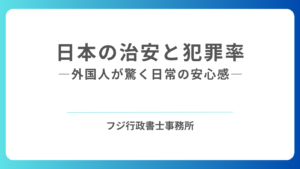
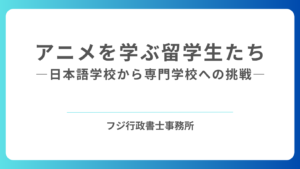
コメント